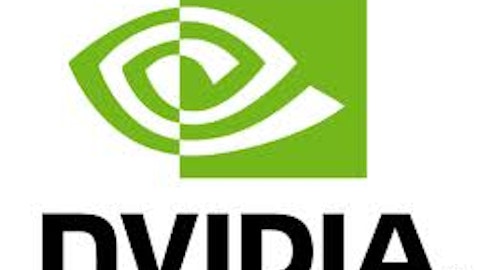The most popular small cap stocks among hedge funds (which we define as those stocks with market capitalizations between $1 billion and $5 billion) generate an average excess return of 18 percentage points per year (learn more about our research on small cap stocks). We think that this is because small cap stocks receive less attention from large institutional investors such as mutual funds and so are more likely to be either undervalued or overvalued. It’s also possible to treat the top small cap picks from individual hedge funds as a list of ideas for an investor to briefly review and decide if they are worthy of further research- similar to a stock screen in that regard. Here are five small cap stocks which Dmitry Balyasny’s Balyasny Asset Management owned as of the beginning of this year (or see the full list of the fund’s stock picks):
Balyasny reported a position of 2.1 million shares in SM Energy Co. (NYSE:SM), an oil and gas exploration and production company focused on shale plays in the onshore U.S. including Texas’s Eagle Ford and North Dakota’s Bakken. The market capitalization of $4 billion represents a multiple of 19 on analyst consensus for 2014, higher than what we find at some other companies focused on emerging fields and certainly a high premium to where oil majors currently trade. In addition, revenue growth has actually been fairly light at SM Energy Co. (NYSE:SM). As a result we think that we would avoid the stock.
The fund increased its stake in coal company Walter Energy, Inc. (NYSE:WLT) by 53% to a total of almost 3 million shares. The stock price is down over 70% from a year ago as the coal industry has been hit by low demand from steel producers (who are not doing too well themselves) and electric utilities (who have shifted towards cheap natural gas). Revenue fell 33% in Walter Energy, Inc. (NYSE:WLT)’s most recent quarter compared to the same period in the previous year, and currently 15% of the float is held short. Billionaire Steve Cohen’s SAC Capital Advisors was also buying the stock during Q4 (find Cohen’s favorite stocks).
Penn National Gaming, Inc (NASDAQ:PENN) was another of Balyasny’s small cap picks. In the first quarter of 2013, the company’s revenue grew by 8% versus a year earlier though weaker margins resulted in earnings declining by 17%. In addition, gaming and casino stocks in general are trading at high multiples and Penn National Gaming, Inc (NASDAQ:PENN) is no exception with a trailing P/E of 30. That combination of high valuation and only moderate top line growth- with the company underperforming in terms of earnings- don’t make Penn look very interesting to us.
According to the 13F, Balyasny and his team were buying Newfield Exploration Co. (NYSE:NFX) between October and December, closing 2012 with 2.9 million shares in their portfolio. Newfield Exploration Co. (NYSE:NFX) is another oil and gas exploration and production company; adjusted earnings have come in below expectations the past few quarters, and the business has been forced to record special items. Wall Street analysts expect Newfield Exploration Co. (NYSE:NFX) to recover, and as a result it trades at only 8 times forward estimates, but we would not want to be too dependent on their optimism.
Balyasny more than doubled its holdings of International Game Technology (NYSE:IGT), a $4.3 billion market cap provider of gaming software and technology. International Game Technology (NYSE:IGT) experienced strong growth on both top and bottom lines in the fiscal quarter ending in December (the first of its fiscal year) from a year ago, and it is valued at a discount to Penn National Gaming, Inc (NASDAQ:PENN) at trailing and forward P/Es of 17 and 12, respectively. The sell-side then expects further growth over the next several years, with a five-year PEG ratio of 0.9.
We think that International Game Technology (NYSE:IGT) actually looks somewhat interesting, though we would want to be more confident in its continued growth. Penn National Gaming, Inc (NASDAQ:PENN), on the other hand, appears overvalued if anything. The E&P companies- and we can throw in Walter for that matter- seem quite speculative, dependent on either a strong improvement in conditions in their respective commodity markets or on acquisitions; neither of those seems like a good investment thesis at this time.
Disclosure: I own no shares of any stocks mentioned in this article.





